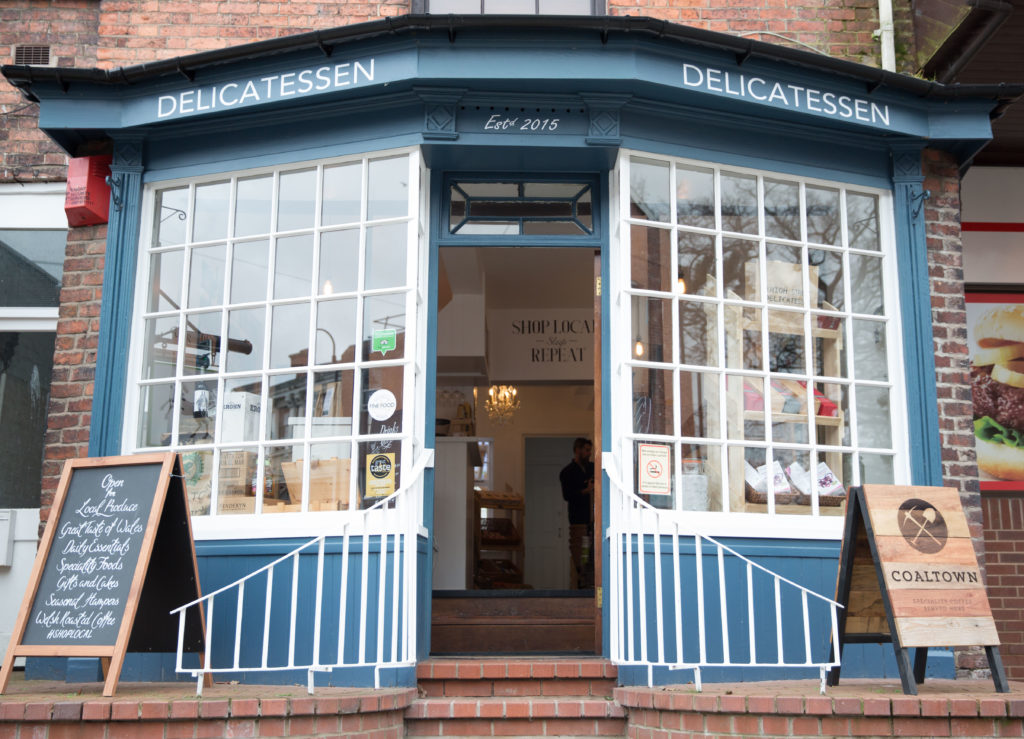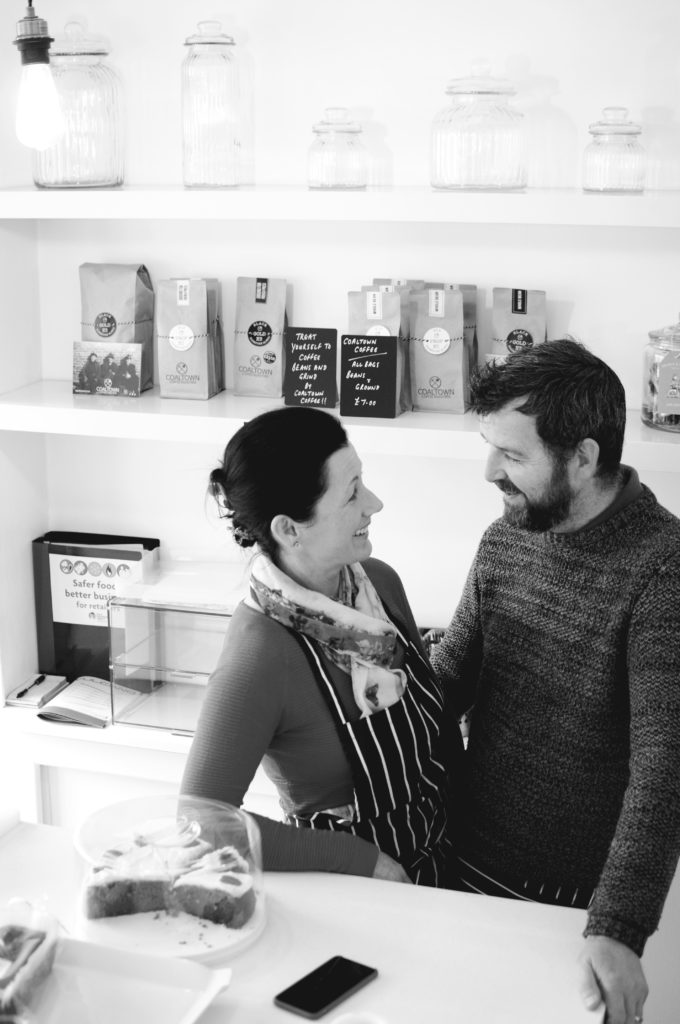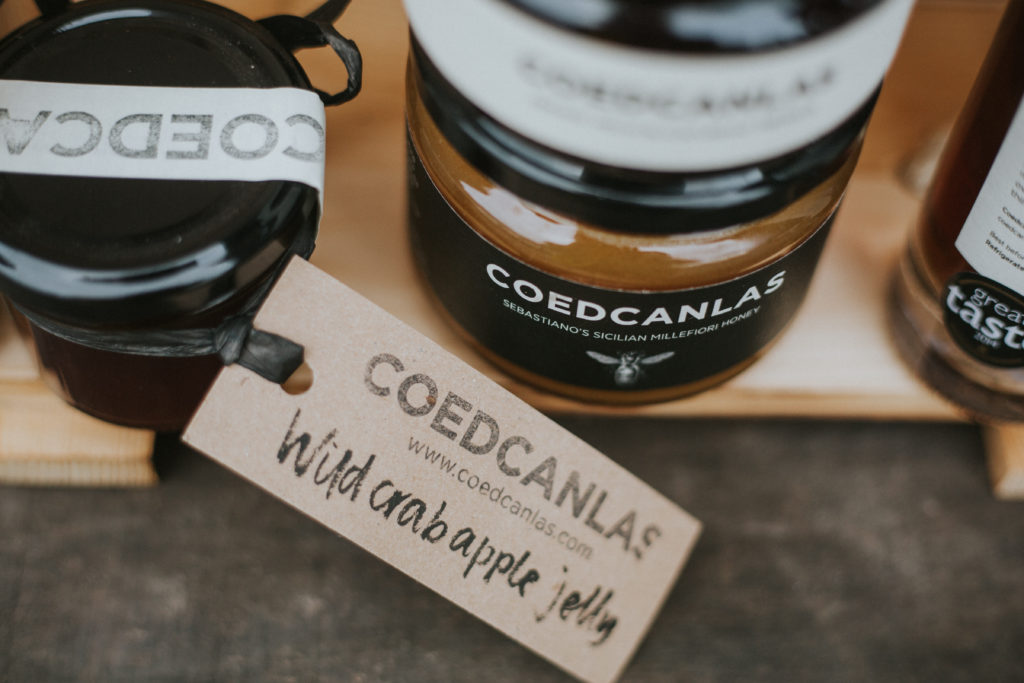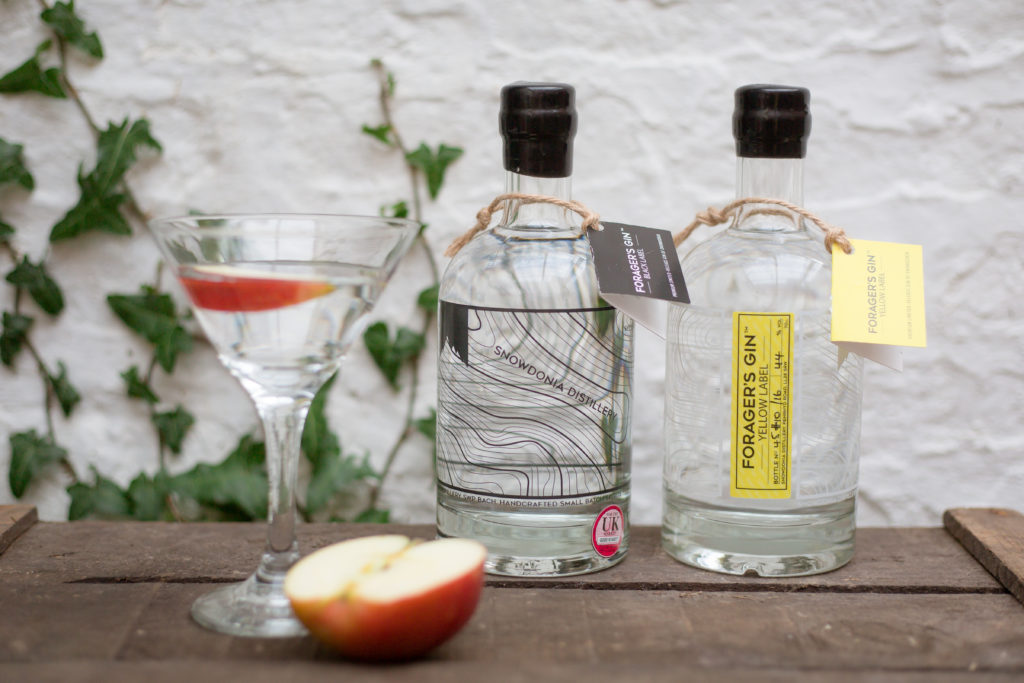Last week I wrote about what a brand story is, and this week I wanted to show you brand stories in commercial action. I met Barrie and JoJo through serendipity. On one of David Hieatt’s courses, I met Will from Auxilium Group. Who in turn tweeted about Brays Cottage fabulous pork pies, which I’ve been a fan of for years. And he’s bought them from The High Street Delicatessen.
And now I look forward to 6 pm on a Sunday evening when their newsletter lands in my inbox.
I’ve managed one visit to the actual shop, where Barrie offered me a cheesy surprise. And we’re still talking. What I love is these guys love their products, and spend a lot of time meeting getting out and about to meet their producers and suppliers. They love their stories so that they can share them. You don’t get that in Tesco, not with true authenticity.
So I asked Barrie to share some of their thoughts on brand stories and more.
For those who don’t know you, can you give a potted history of how The High Street Delicatessen came into being?
Our story is one of serendipity. JoJo was making cakes, and we were selling them at local country shows. We got a call from our (now) landlady who remembered a chat when JoJo had mentioned a dream to run a café/deli. Not many weeks later, on 13 October 2015, we threw open the doors.
I’ve heard you describe yourself and JoJo as storytellers, how did that become a thing for you both? Where did the interest stem from?
I guess initially – probably as a consequence of the limited time we gave ourselves between signing the lease and opening up – we were pretty generic. We shopped from catalogues mainly, and so we looked and felt the same as everyone else. It was ok, but not distinctive enough to hold people’s attention.
So we started handpicking producers, particularly those who combined great tastes with interesting stories. We only picked things we loved, and so it was easy to get passionate about the stories. The more passionate we were, the more distinctive our offer became to our customers.
Did the storytelling develop over time, as I know that provenance is key to you both? Or can you not have provenance without a story?
Mm, tricky. ‘Provenance’ in the art world is all about authentication … so, trust, really. In that sense, we tell stories to deepen the connection people feel with producers. In doing so, we hope it presents a sense of the value we place on them and makes a case for folk to make an investment of their own by spending hard cash on producer’s stuff.
We need people to trust our decisions about the choices we make so going the extra mile to discover the stories, to meet the producers and to recount the detail back to customers makes sense. It also adds value to us; we’re not just shopkeepers.
Do you come across great tasting product but without good stories? Or where it’s all story and no taste? If it’s great but no story, what do you tell the producer? Have you helped producers bring their story to life?
Great question. We definitely have things on the shelves which we don’t need to be quite so engaged with in terms of the back story. In those cases – I’m thinking fruit drinks, for example – it’s the taste that counts. We choose a producer whose tastes work for us, and that’s the range we stock. Still handpicked but we don’t spend lots of time ‘selling’ it.
A premium gin, though, is all about the ‘value’. If the price is high, you need to persuade folks that the whole package makes it worth the investment. That becomes a combination of style (packaging), substance (taste) and provenance (the story behind the ‘brand)’. The best producers understand the need to explain their tale, so the help they need is for us to pick them and turn the story into sales.
I know this will be like choosing between children, but what’re your favourite stories amongst the products or producers you stock?
We love that Nick Tonkin planned to explore Siberia but he was lured to the banks of the Daugleddau estuary by Annette, and now they produce exquisite honey using the techniques his family have used for years. Coedcanlas is the hamlet they live in and the name of the brand.
Strange but true … the two ladies who label jars and help with packaging are both from the same village in Norway, but they made their way, independently, to that part of West Wales before ending up working with Nick and Annette. We only learned that by getting out of the deli and visiting the guys.
What’s the strangest or weirdest story you’ve ever heard about a product?
Can’t think of any specific ‘mad ones’ … but we do get quite a lot of approaches which start with “Dear Buyer” or “For the Purchasing Department” which perhaps suggests that folk haven’t really spotted that we’re a small owner-run deli, not a major chain. We’re in rural mid-Wales so any fads which strike a chord in the great metropolis generally need to be around for a while before we’ll risk them on the shelves.
As a store owner, what advice would you give smaller brands in terms of their story when they’re telling it to potential new stockists? First rule obviously being have a great tasting product!
We’ve found that people like there to be humans involved. But they also like a sharp looking brand. Finding ways to present professionally but also find human touch points for customers and retailers to hook onto is the perfect balance. David and Anthony at Jin Talog do it really well.
In your view, what is it about products with stories that customers really connect with?
We sell a lot of food gifts … I think folk want to hand over the present with that little something extra, the ‘value’ part of the proposition. Also, the stories can reconnect people to what it takes to produce quality food and drink.
When we ran out of Forager’s Gin in December 2016 and told people they could next have some in February, it became an opportunity to explain that Chris the distiller hand-forages and then distils and bottles over 3 and a half weeks. That’s what creates the special taste of his Yellow Label gin from Snowdonia. Running out was a virtue as it created the imperative to tell Chris’s story.
Outside of food and drink, which brands or organisations do you most admire for the way they tell their story?
I love Trakke. Alec Farmer started by rummaging in skips in Glasgow for materials to make things with. Eventually, as he says himself “I didn’t mean to start a business. I just had too many bags and not enough space to store them”. Trakke make bags with heritage materials that were part of our industrial past. In doing so, they are creating our industrial future. I love that.
What’s the story for The High Street Delicatessen in 2019?
Creating as many opportunities to share great tastes and food stories as we can.
If you’re near Newtown, or just want to make a detour with good coffee and cheesy surprises at the end, then pay a visit to The High Street Delicatessen. Go hungry, and with plenty of time. There are good stories in store for you.
But more than that, I think what Barrie and JoJo are doing shows why the High Street is not dead, and how great stories can make all the difference between bland and thriving. That applies whether you’re the retailer or the producer. It goes back to the point I made in what is a brand story, about it adding value, but it also adds a reason to trust.
That’s one valuable story.
UPDATE
Since I wrote this, Barrie and JoJo have sold the deli and are currently touring Europe (COVID restrictions permitting) in a fabulous van. Follow their adventures and keep up with their next plan over at Feast and Fables.
Images courtesy of The High Street Delicatessen, Ashleigh Cadet and Hannah at Rocksalt Photography.



